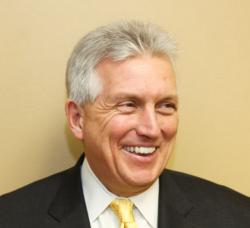Day: August 1, 2018
Alignment Builds Prosperity…Continued
Though court actions, regulation and lawsuits appear to be increasing in recent years, that’s not exactly a new trend. So concerned was trial lawyer Philip Howard about the proliferation of litigation and regulation in the 1980s and 90s, that he wrote a best selling book entitled, The Death of Common Sense: How Law is Suffocating People. I had the opportunity to interview Mr. Howard regarding his work. He explained conditions that continue as the norm along with what he called the degradation of the legal profession. Mr. Howard commented,
“The profession has sort of eroded. Slowly, year after year, standards are getting lower. What people get away with…are willing to say, arguments they’re willing to make, (they) say something that is literally accurate but conveys what they know to be an untruth, and the result is general degradation.”
Howard believes these conditions hurt initiative and our ability to get things done. Compliance costs alone have been stifling for business. In fact, according to research by Crain and Crain total costs from regulation are more than $2 trillion annually. Other researchers suggest costs as high as $4 trillion, $13,000 for every American.
People are Willing
Still, plenty of people are willing to work at solving problems, creating products and providing services. However, Howard argues that the bureaucratic systems we’ve created constrain them. He noted,
“Many people are willing to take responsibility, but we’ve created systems which out of distrust of others taking responsibility, we’ve basically allowed no one to take responsibility. Whether it’s teachers in the classroom or doctors in a hospital using their best judgment.”
Less Trust = Less Profit
Ultimately, the lack of trust from heightened legalism and regulation makes relationships and organizations less functional and less profitable. This is exactly what Mr. Fukuyama predicted in his groundbreaking book entitled Trust. He argued that people, organizations and societies simply function better with trust, where values and not litigation guide behavior. Mr. Fukuyama’s observations regarding trust and success are almost instinctive with effective leaders. Not surprisingly, a recent Trust Across America study noted that “trustworthy” companies produced a 2-year return of 82.9% vs. S&P’s 42.2%.
Consider what former Boston Celtics president, the late Red Auerbach, said about his legendary run of success. In a 1980s interview, Auerbach explained that trust and loyalty were central to his philosophy and were applied in relationships with workers and players. He credits 16 world championships to this philosophy. Auerbach also commented on the lack of ingenuity and productivity that come from fear and mistrust:
“If you have employees who work through fear, you’re not going to get any ingenuity out of them. All you’ll have are robots…(they) do their jobs, have a low-key approach, stay out of trouble.”
By the way, according to a recent Gallop study, disengaged workers of this kind cost the US economy $450-$550 billion per year.
Leadership is Essential
True, legalism and regulation can make people conform and even intimidate them into compliance, but they’re limited. They cannot, for example, bring people together in cooperative efforts or inspire them to greatness. Those things happen only when strong leaders pursue common purposes, align behavior with core values and thereby create a solid foundation of trust.
No doubt, leadership is essential for moving organizations and even society towards trust. However, creating or gaining trust, requires leaders who are willing to give it. How do leaders give trust? They rely less on laws and rules to control behavior and more on core values and principles to align and guide it. But leaders must first align their own behavior before they can expect others to do the same. This is true for corporate leaders as well as those in nonprofit fundraising.
